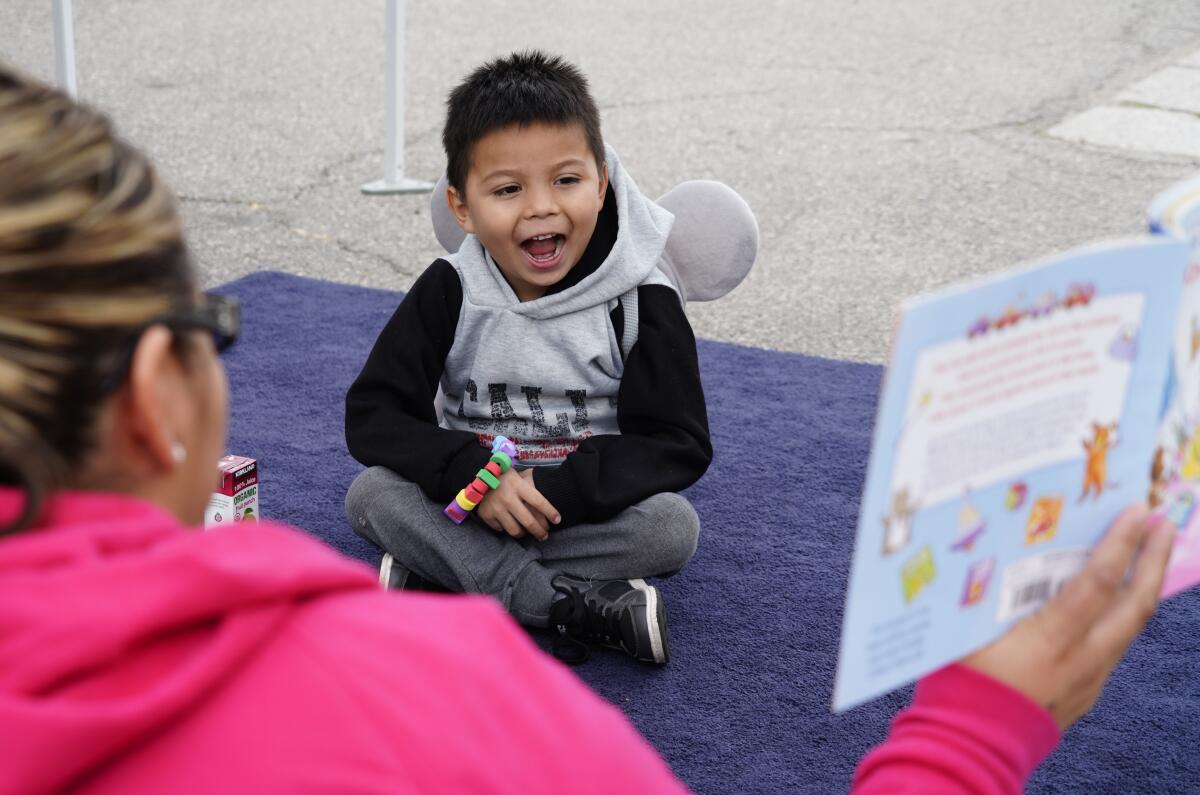How reading allows kids’ mental health to flourish and what you can do to help foster it

- Share via
The benefits of reading with children are innumerable. Children who read with their caregivers report higher levels of reading comprehension, fluency and self-confidence. But do you know of its mental health benefits? The therapists from Children’s Institute share insights and tips on reading with children for improved mental and behavioral health outcomes.
Self-regulation skills
Reading provides opportunities for children to explore their emotions. Characters in stories face challenges while experiencing and navigating emotions, providing children a safe space to understand and express their own feelings. This process contributes to emotional regulation and helps children develop coping mechanisms for dealing with stress and other difficult emotions.
- Reading Activity: Act out the character’s emotions with your child to practice reading facial expressions and body language.
Reading by 9’s guide to reading readiness. Find expert tips, book recommendations and resources for parents of kids under age 5.
Empathy and kindness
Reading helps children learn about empathy by allowing them to step into other people’s shoes. Through storytelling, children connect emotionally with the characters as empathy is fostered. Children then learn to relate with others, helping them develop a sense of compassion.
- Reading Tip: While reading with your child, encourage further cognitive engagement by asking questions.
Bonding and attachment
Reading with caregivers nurtures bonding and secure attachment, which are fundamental for healthy development. The shared experience of reading promotes feelings of safety, trust and connection. Strong attachments provide a secure base from which children can navigate their world.
- Reading Tip: Create a routine for reading to encourage regularly scheduled time for bonding. For example, read together before bedtime.
Trauma and loss
There are stories that address trauma and loss. From addressing feelings of loneliness and sadness to addressing the loss of a family member, stories can mirror what the child is experiencing, which can help them identify, feel and cope with their grief in healthier ways.
- Reading Tip: While reading with your child, ask specific questions that open up dialogue on how they are coping.
This piece is a part of the L.A. Times parent reading guide, A guide to early learning: What to know for reading readiness. Find expert tips, book recommendations and local resources meant to help parents of kids under 5 incorporate reading into a child’s daily life.
